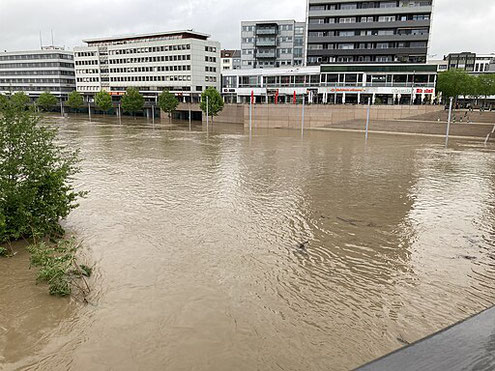
In recent weeks, extreme storms and flooding have hit southern Germany and presented many companies with immense challenges. Major damage and longer business dsiruptions are often the result. But are we really at the mercy of these forces of nature?
I often think of the words of a managing director who recently said: “We are already saving energy, but that doesn't help. What can we do?”
This question gets to the heart of the problem:
- Lack of awareness: Many companies underestimate how much they can be affected by climate change - both on site and in their supply chains.
- Lack of information for risk assessment: There is often a lack of knowledge on how to identify specific risks. Many available tools are not tailored to the specific needs of companies.
- Ad-hoc Maßnahmen statt einer systemischen Auswahl der jeweils effektivsten MaßnahmenAd hoc measures instead of a systemic selection of the most effective measures in each case: Spontane und kurzfristige Lösungen wie mobile Klimaanlagen im Sommer sind selten effektiv oder kostengünstig und verbrauchen zusätzlich Energie.
In discussions with entrepreneurs, I have realized how important a systematic approach is. It starts with a climate risk analysis to identify relevant risks and opportunities. On this basis, it is then possible to develop not just any measures, but the most effective measures for the specific company.
Climate adaptation can also generate a wide range of additional benefits. Inspiring examples include green company buildings, often with green roofs and façades. Companies that have already gone down this path report:
"Our energy costs have fallen and we are now attracting more customers and qualified employees who are looking for a sustainable environment."
Attractive green outdoor spaces can not only regulate water and reduce heat, but also enhance the attractiveness and image of the area, thus attracting both customers and qualified workers. Images: Birgit Georgi
This shows that companies can not only become more resilient and competitive through targeted climate adaptation, but can even open up new business opportunities.


